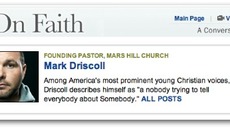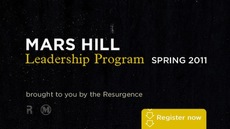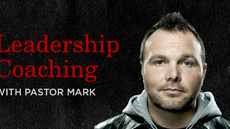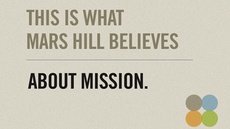
[photo via]
I want to give you a few principles for being fruitful, and I hope and I trust and I pray that your desire would be fruitfulness. Don’t be ashamed of the areas in which you are not bearing fruit. Be honest about them. Don’t bristle and defend yourselves. Don’t blame other people. Don’t make excuses and don’t settle for fruitlessness. By the grace of God, we can be fruitful. I’ll give you some principles for how to do that.1. Cultivate your relationship with the Holy Spirit.
In Galatians 5:22 it speaks of the what of the Spirit? The fruit of the Spirit. How do you get fruit? Fruit—good works, changed character, new life, helpfulness to other people—comes out of the power and presence of the Holy Spirit. Friends, fruitfulness is not what we do for God. It’s what God does for us. It’s what he does in us and, by the power of the Holy Spirit, it’s what he does through us. Don’t look at God as a middle manager with a clipboard saying, "What have you done for me this year?" Look at God as a friend who’s there to help, as a gardener who’s willing to prune and serve and aid. And the seed of new life, and the seed of fruitfulness, is the indwelling presence and power of the Holy Spirit. That’s the seed from which new life and fruitfulness come. The Holy Spirit takes up residence in every Christian. See, the non-Christian lives a natural life by their own willpower and strength. That’s why their resolutions don’t work. Willpower only lasts so long. Instead, Christians live a supernatural life not by their own power but by the power of the Holy Spirit, that God is at work in us, that God is at work through us, so that we can be fruitful. So you want to cultivate your relationship with the Holy Spirit. Get to know and love and enjoy the Holy Spirit. A couple simple ways to do this. Regular Bible reading. Something that basically all Christians believe but not all Christians obey. God the Holy Spirit, through human authors, wrote the 66 books of the Bible. Scriptures are the primary means by which God speaks to us. And so when you pick up your Bible and you pray and ask God the Holy Spirit to meet you, you’ll learn Scripture. I really want you to read through the whole Bible this year. Get an app that will do it, mark it out in your Bible, go old school, use something called a "bookmark." You can do it. Some of you have; do it again, praise God. Some of you haven’t; you need to. So, through Scripture we cultivate our relationship with the Holy Spirit by listening to God.And we talk to God through prayer. So praying to God, beginning your day in prayer, praying over your decisions, asking God for wisdom, asking God for help, and then seeing God answer prayers. One of the things we do at the Driscoll dinner table is we have a notebook and we write in prayer requests for family, friends, neighbors, coworkers, classmates. And when prayers are answered we check them off and we recount how God hears and answers prayers. We have pages and pages and pages of prayers and one of the things we love to do when we have people over for dinner, sometimes when we start our prayer time, if they’re in the book we’ll pull it out and say, "Look, here you are. We prayed for you and God answered that prayer." We’ve seen people cry at our dinner table. Pray, pray for people, pray for yourself, pray for your needs. That’s how we communicate with God and that’s how you cultivate your relationship with the Holy Spirit, listening to God, talking to God. That could be plugging into Mars Hill, joining a community group, getting involved with God’s people, having the Holy Spirit minister to you through the community of God’s people. All right, what do you need to do? How do you need to reorganize and reorient your life to be filled with the Holy Spirit? This includes being sensitive to the Holy Spirit. When he convicts you of sin, stop and listen. Don’t quench, grieve, resist, fight. When he lays something on your heart, go with it. All right, be led, filled, directed by the Holy Spirit. That will cultivate fruitfulness in your life."Our goal is not just to abstain from evil, but to be fruitful."
2. Repent of sins of commission and omission.
Sins of commission are the occasions when we do what we’re not supposed to do. Omission is when we don’t do what we’re supposed to do. Much of our fruitlessness or our lack of fruitfulness is the result of sins of omission. So repent of your sins of commission, meaning if you’re doing something you’re not supposed to be doing, stop doing it by the grace of God. Stop doing it. But what about those things that you should be doing that you’re not? I’ll give you an example. You may say, "I didn’t steal any money last year." That would be a sin of commission, you’re not supposed to steal. What about your sin of omission? Were you generous? "No." Okay. "Well, I didn’t hurt anybody!" Yeah, but did you help anybody? "Oh yeah." See, our goal is not just to abstain from evil, but to be fruitful. So it’s looking at those areas of your life, saying, "Yeah, last year I didn’t do this, I didn’t do this, I didn’t do this. There were some things that, yeah, I was supposed to do and I didn’t do them." All right, those things that you neglected, they reduced your fruitfulness. So repent of what you weren’t supposed to do and did do and what you were supposed to do and didn’t do. [photo via]
[photo via]
3. Count your figs.
Count your figs. Now, I’ll extend the analogy. This guy owns a vineyard, apparently he’s got all the trees numbered and he keeps an annual accounting of all of the trees. And he goes to tree #27 and says, "Tree #27 has had zero figs three years running." Some of you, your big problem is you don’t count your figs. You’ve got to measure, count. Some of you are naturally administratively gifted and organized. You’re so freakishly tidy, you actually need to calm down, okay? But some of you need to get a label maker and you need to get a plan, right? You need to put some plans together.Let’s say, for example, you want to lose weight this year and you want to be healthy. First thing you need is a scale. "How many figs do I weigh? Okay, how many figs do I weigh? I got to count my figs." And then you got to read the boxes and labels. "How many calories, how many figs am I eating?" You’ve got to track it. How about time? How many of you are perennially late? You’re always, or often, late? You know what you need? You need to track time. You need to count it. You need to measure it. "How long does it take to go somewhere? Why am I always late?" And I’ll tell you what won’t work, setting all your clocks to different times. Now you’re late and confused. Set all the clocks to the same time and then count time and show up on time, or early. How many of you, the issue really is money, where you’re like, "I exceed my budget. I get upside down. I’m in debt, then I’m not generous." You know what you need? Some sort of accounting software and a budget. You got to count your figs. "How many figs do I have coming in? How many figs do I have going out? How many figs go to God? How many figs go to the poor? All right, how many figs go to, you know, the cable company. What am I doing with all of my figs?" You got to learn to count your figs. Some of you say, "I don’t like numbers. I’m not good with numbers." You got to learn to count your figs. You won’t make changes in your life unless you’re tracking it, keeping an accounting and a reckoning of it. That’s the point of the parable. He’s got an idea of where his figs are coming from and where there is fruitlessness."You won’t make changes in your life unless you’re tracking it, keeping an accounting and a reckoning of it. That's the point of the parable."
4. Measure fruitfulness, not busyness.
This one’s huge. Some of you say, "I’m busy! I’m active! I’m so busy, I’m committed to everything." But are you fruitful? There’s a big difference between busyness and fruitfulness. Some people, they are filled with coffee. They’re returning e-mails, talking on the phone, texting while they’re driving, doing their make-up and their hair while doing Pilates on their way to work. I mean, they’re multi-taskers, they’re busy, they’re active, they’re rushed. They’re always late, they’re not emotionally present when they’re there with you. They’re taking calls over dinner, I mean they—stuff’s falling through the cracks. They’re not sleeping enough, they’re stressed out and shaking. "I’m so busy!" And what they want is compassion; what they need is fruitfulness. Some of you need to learn to say, "I can’t do that, I can’t do that, I can’t do that. I need to see three things through to completion rather than seven things through to incompletion. I need to be fruitful, not just busy."I’ll give you an illustration from a cage fight. Back in the old pride fighting days, which cage fighting was in Japan. It was a big deal. And they had the most magnificent epic entrances for the fighters. The fireworks would go off and this huge screen would go up and the fighters would come down this walkway toward the cage and they’d have a whole posse and hip-hop dancers and music and costumes and it was awesome. I remember this one fight, this guy’s coming down the ramp and he is busy. He's dancing. He’s screaming. He’s banging his chest. He’s very active. I mean, this guy’s just shaking. He gets in the cage, he’s running laps in the cage. And then his opponent comes out and it looks like somebody woke this guy up from a nap and he needed a cup of coffee and he didn’t even want to be there. He just walked, no fly girls, no posse. Nothing with rims, nothing. Just him walking down this ramp toward the ring. And he gets into the ring and he sort of meanders to the middle and the other guy’s running around the ring, "Argh!" And then they finally come together and the one guy’s shaking and looking him in the eye and talking trash. And the one guy who’s kind of asleep, he’s like, "Mm-hmm, whatever." And then they come out, they touch gloves, and this one guy dances and he’s screaming and he’s, "Argh!" yelling. And the other guy punches him and knocks him out. I remember watching the fight thinking, "I want to be that guy. I want to be that guy." Because the one guy, if his family asked him, "How’d it go?" "I was really busy today." The other guy would be like, "I threw a punch and then I went home. And I knocked the other guy out." And the truth is, so many of you keep getting knocked out—you’re not focused. You’re not present. You don’t have a plan. You don’t have a budget. You don’t have a schedule. You don’t have priorities. You’re just busy. Busyness and fruitfulness are two different things. Some of the most fruitful people I know are also some of the most present, focused, relaxed people I know. They don’t waste their energy on things that they shouldn’t waste their energy on. They focus it. "Need to love Jesus, need to love my spouse, need to love my kids, need to help the poor, need to serve those in need. Going to do that and not going to waste all my time and energy on everything else." Don’t exchange busyness for fruitfulness. Later this week, How To Be Fruitful, Part 2: 5) learn from fruitful people; 6) be an activist, not a fatalist; 7) turn your pain into plans; and 8 ) use your manure."And the truth is, so many of you keep getting knocked out—you’re not focused. You’re not present. You don’t have a plan. You don’t have a budget. You don’t have a schedule. You don’t have priorities. You’re just busy."













